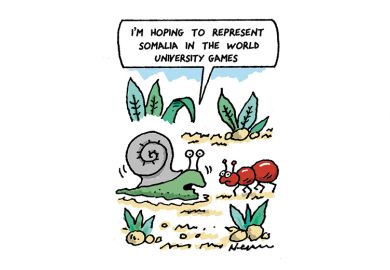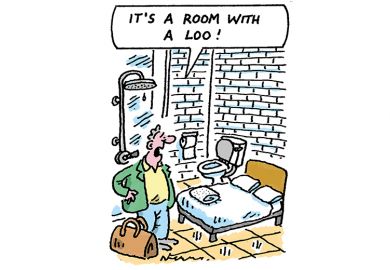
A geography lecturer who asked female students to don clown make-up in class has resigned from a Louisiana university after it emerged that he had posted online about his “face-paint fetish”. According to Inside Higher Ed, Joseph Tokosh claimed the face-painting exercises at Nicholls State University would help undergraduates learn about different cultures, including Mexico’s Day of the Dead celebrations and Japan’s geishas. But students became suspicious when he asked them to do face painting in his office and gave them bonus points if they let him paint them. According to The Nicholls Worth student newspaper, one student’s grade went from D to A after he watched her paint on her friend’s face, while students not on the course were also invited to participate. Nicholls State has confirmed Dr Tokosh quit after being told his contract would not be renewed, with USA Today adding that students at other universities where he has worked had voiced concerns about Dr Tokosh’s unusual teaching practices.
There’s an old cliché about tortured writers; maybe it should also apply to teachers of literature. Last December, Xing Bin, a lecturer in the College of Literature at China’s Linyi University, embarked on an uncommon venture, setting out to taste the life of a food delivery driver. Spurred on by curiosity, as he recently told the China Daily, he worked 10-hour days, making a total of ¥7,000 (£765) – an average of ¥10 or £1 per hour – over four weeks of highs and lows. “During that month, I tasted the bitterness and the happiness of this job with my heart,” said the lecturer, who chronicled the experience online. “I delivered over 2,000 orders, and three of the people who ordered impressed me a lot.” Still, after a month, Dr Xing concluded the experiment, returning to teaching full time and a life of lesser hardship.
Big Brother might not be watching Norwegian scientists, but he is monitoring whether they are sitting at their desks. That wasn’t the intention of managers at the Marine Research Institute’s Flødevigen research station, who insist heat sensors under desks were introduced only to assess whether a proposed downsized office with fewer desks would cause difficulties. But the sensors did not go down well with staff, who criticised their use as “deeply invasive”, sparking wider debate about the acceptability of workplace surveillance. The institute is rethinking the move, but any suggestion that it was motivated by a desire for Orwellian oversight is ridiculous, said one manager, noting that copious information on staff whereabouts was already available once staff logged on to their computers.
Former Conservative MP Antoinette Sandbach had clearly not considered the Streisand effect when she threatened to sue a University of Cambridge PhD student who has been investigating her slave-owning ancestors. Her family ties to the Liverpool merchant Samuel Sandbach, who owned a stake in plantations in the West Indies, had already been made public by Malik Al Nasir two years ago, but it was Ms Sandbach’s decision to ask him to remove a reference to her from his TEDx talk, via her solicitors, that truly brought the matter to public attention, with the story landing on BBC News. “This is a fundamental right that is being put under threat by the notion that anyone who doesn’t like what you find can demand censorship on the grounds of their own perceived rights of privacy,” Mr Al Nasir said.
Speech therapy might seem an unlikely place for politics to enter the classroom, but – in today’s world – it’s as good as any other. This month an associate professor of the subject at Charles Darwin University in Australia emailed students to tell them they may as well give up their careers if they were to vote “no” in an upcoming referendum to determine whether the country sets up an Indigenous committee to advise its parliament. According to the Daily Mail, Bea Staley told students that the university supported the “yes” vote, saying: “If you feel you are unable to vote yes for Aboriginal and Torres Strait Islander peoples’ rights, you might want to reflect deeply on whether a career in allied health in Australia is really for you.” Charles Darwin vice-chancellor Scott Bowman reportedly said the lecturer would be “counselled” and stressed that anyone who voted “no” would still make an excellent healthcare worker.
As any student has been told, Wikipedia is an unreliable source. But is it? The free online encyclopedia, once regarded with a hefty dose of suspicion by the scholarly community, appears to be gaining momentum among academics, many of whom use it as a reference – and, for a small but growing group, a means of studying science. Authors of a study published this week in the journal Plos One say that, aside from offering relatively factual explanations, the site is a largely untapped resource for researchers to document the “incremental growth of knowledge” and ways in which science “accumulates and translates into public discourse”. Omer Bejakob, a co-author of the research, likened the site to an “MRI of the scientific consensus”. “Imagine we could see a scientist’s revisions on their papers,” he said. “That would be the equivalent of what we’re doing.”
Register to continue
Why register?
- Registration is free and only takes a moment
- Once registered, you can read 3 articles a month
- Sign up for our newsletter
Subscribe
Or subscribe for unlimited access to:
- Unlimited access to news, views, insights & reviews
- Digital editions
- Digital access to THE’s university and college rankings analysis
Already registered or a current subscriber?



